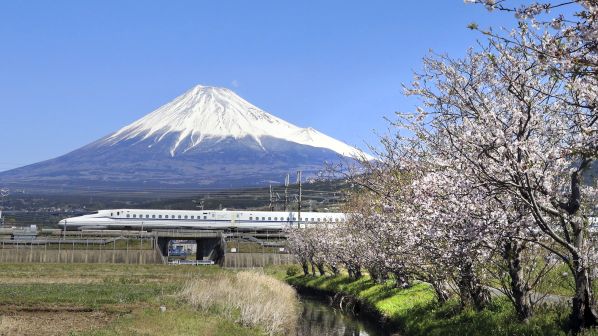JAPAN Railways Group (JR Group) has reported a net loss in all four of its publicly traded firms for the first nine months of the fiscal year following a collapse in demand for passenger services due to the Covid-19 pandemic.
East Japan Railway (JR East) reported a total net loss of Yen 294.5bn ($US 2.8bn) for the first nine months of the fiscal year, between April and December.
JR East has also revised its revenue forecast for the full fiscal year, ending in March, to Yen 1.7 trillion, down 39.8% from the previous year, and adjusted its estimated net losses for the year from Yen 418bn to Yen 450bn, following new falls in passenger demand following the declaration of a state of emergency by the government last month due to rising Covid-19 cases. JR East has stated that it does not expect passenger demand to recover before the end of the fiscal year.
West Japan Railway (JR West) also incurred a Yen 161.8bn loss for the nine-month period, down from a net profit of Yen 117.1bn for the same period in 2019. The loss is the railway’s first since it began releasing quarterly earnings in 2003. However, the company will maintain its earnings forecast for the full fiscal year.
Central Japan Railway (JR Central) also reported a net loss of Yen 111.4bn in the nine-month period but will maintain its full-year revenue forecast of Yen 863bn.
Kyushu Railway (JR Kyushu) incurred a net loss of Yen 11.6bn, compared with a net profit of Yen 35.3bn for the same period in 2019, caused by a 36.7% year-on-year reduction in revenues to Yen 202.4bn. However, JR Kyushu will also maintain its earnings forecast for the fiscal year.
The losses were primarily due to a reduction in revenues from both conventional services due to the coronavirus pandemic, which fell by around 40% compared with 2019, and Shinkansen services, which fell by between 50% and 70%. The fall was driven by a decline of regular commuting and business travel. Commercial facilities and hotels owned by the JR companies also suffered losses for similar reasons.
The four companies are now carrying out a range of reforms, including cuts in personnel costs and a reduction of evening services.

